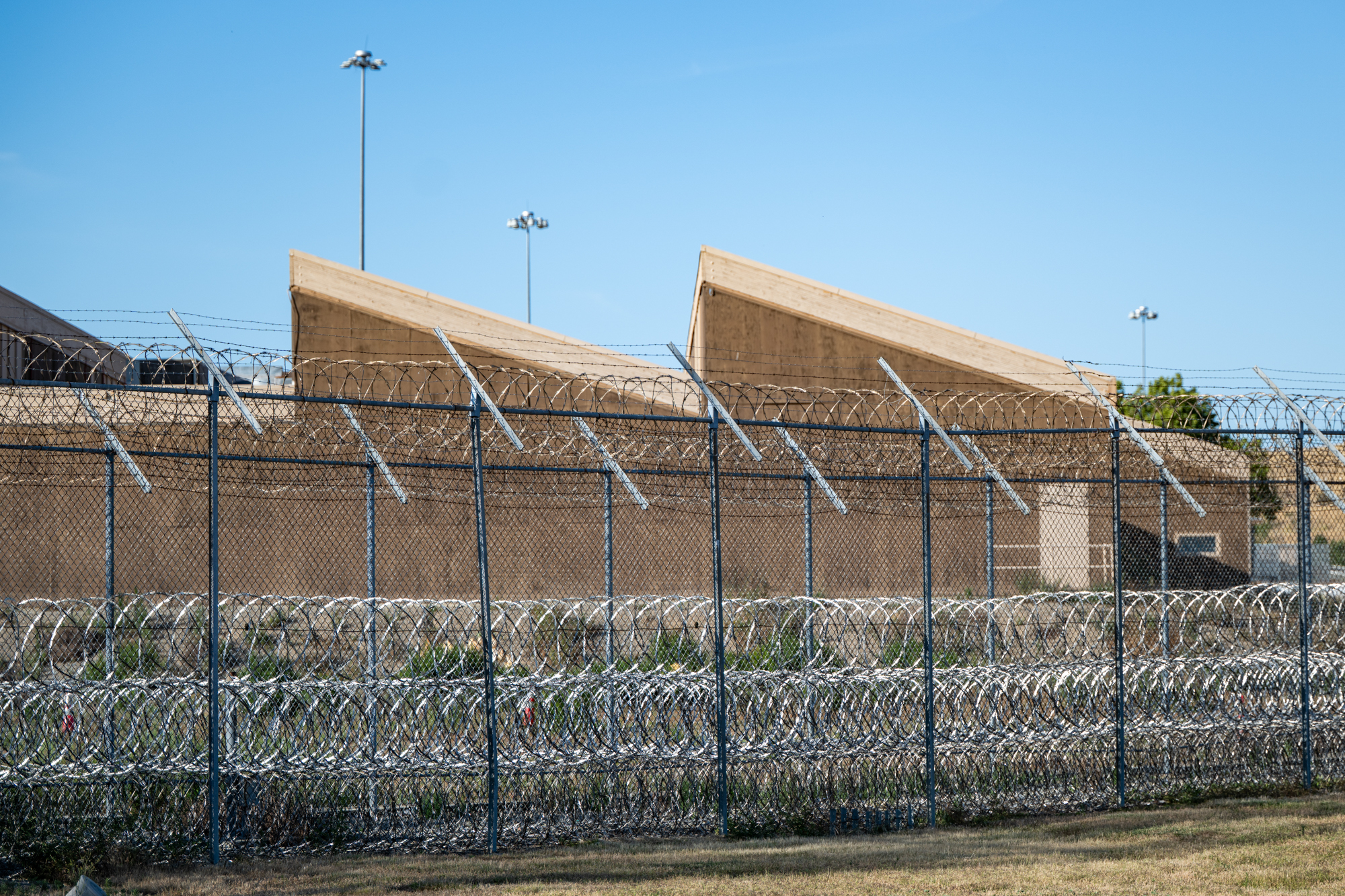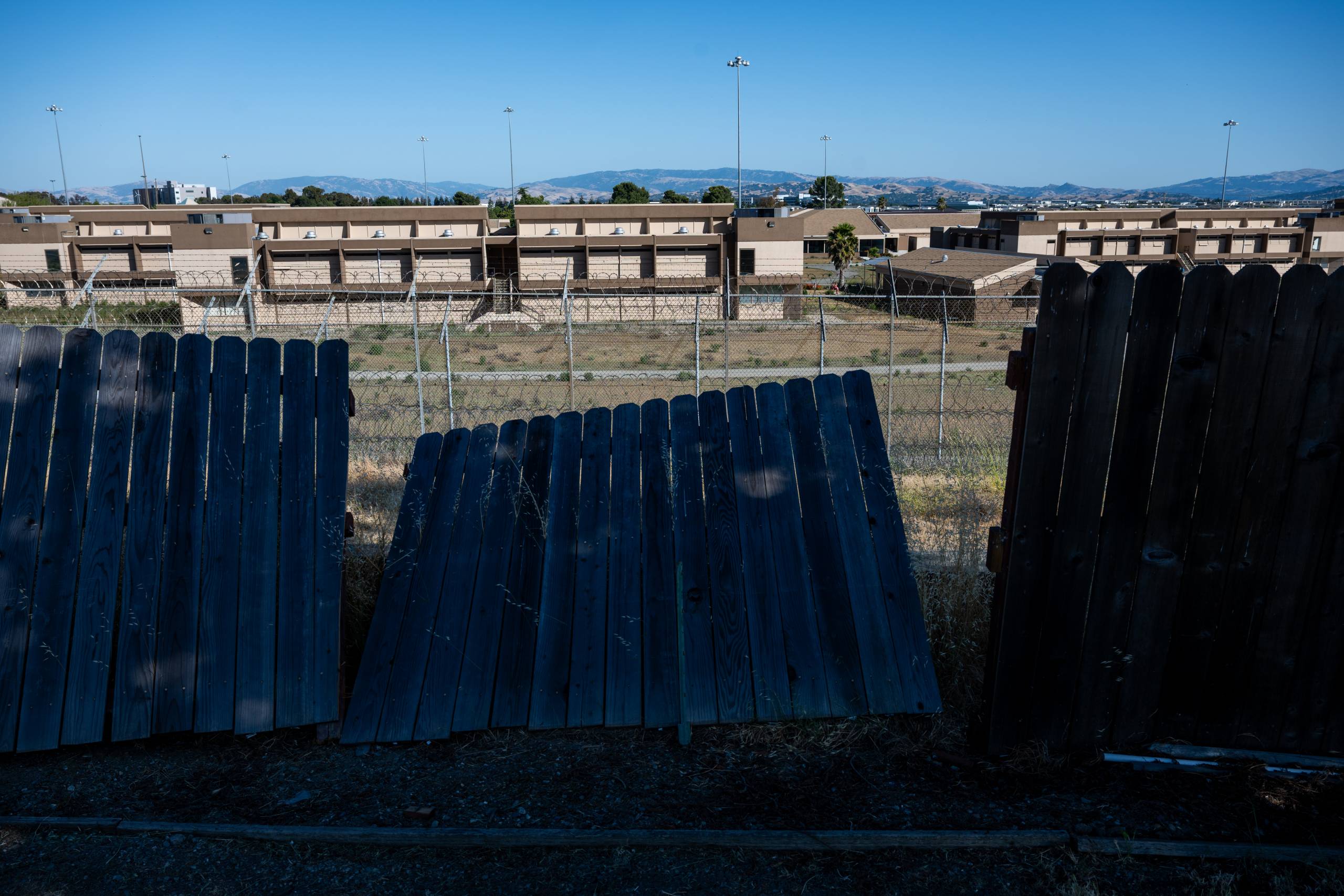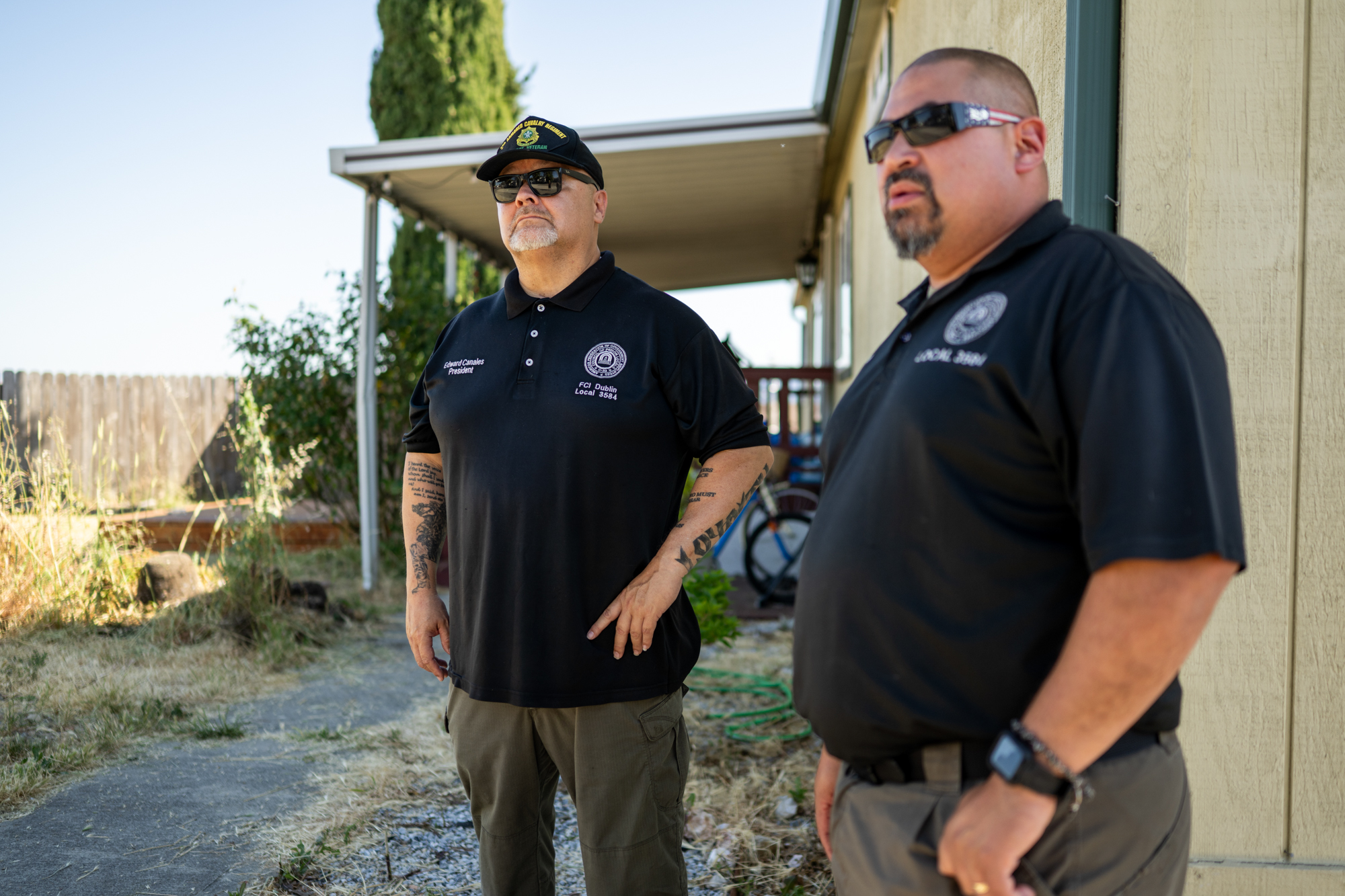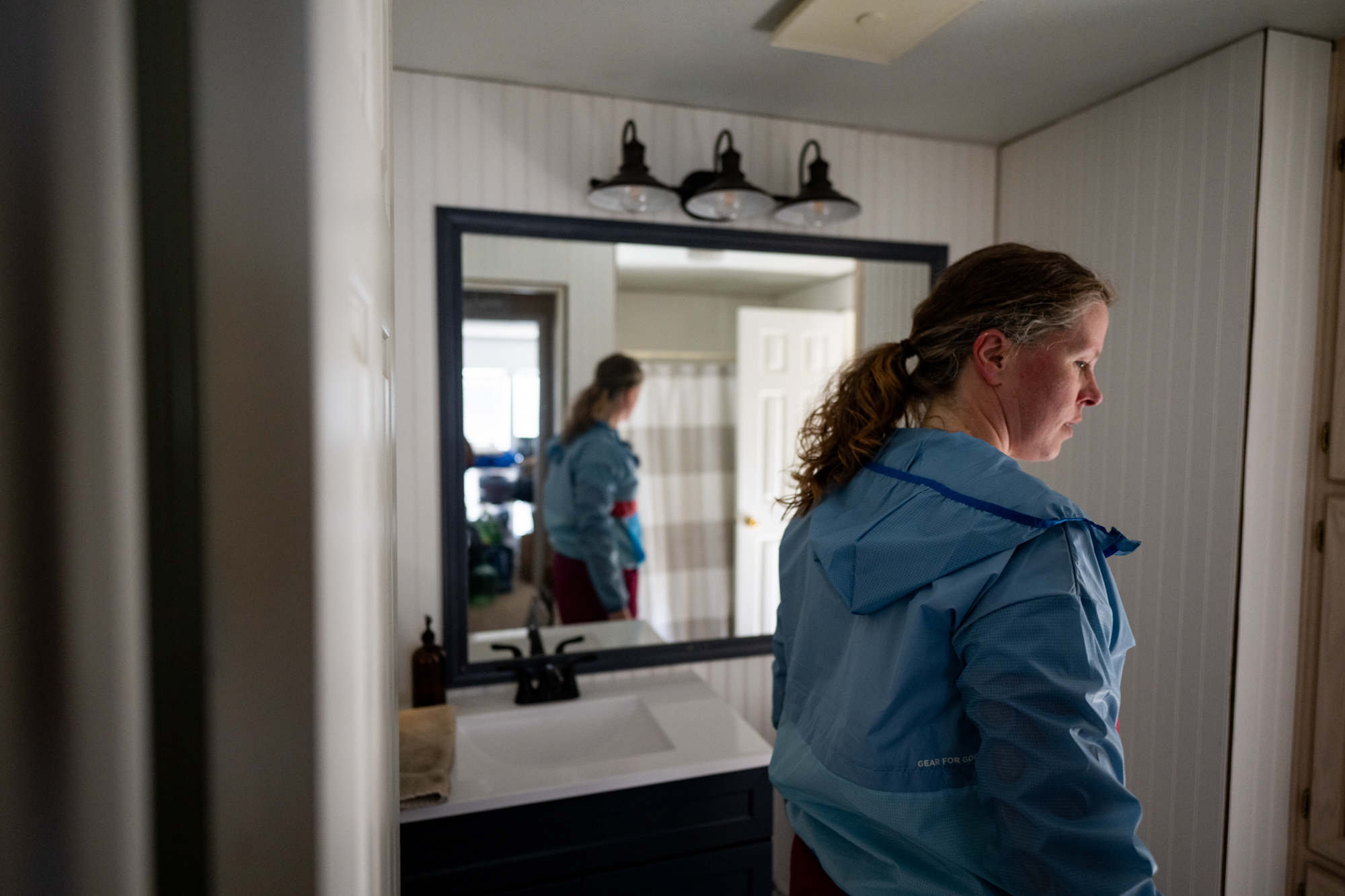The chaplain has since transferred to another prison while his family continues living at FCI Dublin and while they figure out what to do next, said the woman, who asked to be identified as “Shef,” an abbreviation of her first name.
“The financial stress, it’s already expensive here,” she said. “Now you have to pay two mortgages. It’s a lot to bear.”
One employee, who asked not to be named for fear of retaliation, told KQED he purchased his home six months before Dublin shut down. He recently transferred to work at another prison in a county that won’t allow manufactured homes more than 20 years old.
He now owes more than $175,000 and is going through the foreclosure process.
“The agency basically put us in the position of inviting us to acquire a decades-old manufactured home that was dilapidated,” the employee said. “But then announcing to us six months later, oh by the way we’re closing, and we’ve been planning on closing for years.”
“It had a significant emotional, mental, physical toll on me and my family,” he said.
Last week, local union representatives contacted attorneys with the American Federation of Government Employees seeking support in filing a federal lawsuit in an attempt to prevent the evictions and around 80 to 90 employee layoffs.
Edward Canales, president of the Council of Prison Locals C-33, local 3584, said some staff are waiting to hear what union attorneys say before moving their homes, in the hopes they will be able to stay.
“Most people, as of now, are not leaving,” Canales told KQED in a text message. “So far, no mobile home has been moved from [the] lot.”
A spokesperson for the American Federation of Government Employees, AFL-CIO, declined to comment on any potential legal action.
For years, the staff housing at FCI Dublin provided a mutually beneficial exchange between the Bureau of Prisons and the prison’s employees.

Incoming hires purchased mobile homes from departing staff and rented the land beneath them from the government with the expectation that they could one day sell the homes to another employee once they left.
The system afforded FCI Dublin’s teachers, maintenance workers, correctional officers and other staff an affordable housing investment. And with many workers commuting to Dublin because of the high cost of living in the area, it gave the perpetually short-staffed prison a reliable resource: nearby employees who could respond quickly should the need arise during off hours.
But the homes, and the employees’ investment in them, only held their worth while the prison operated.
In an April 2024 brief filed in federal court as part of a class action lawsuit, attorneys for the Bureau of Prisons disclosed the agency had “been considering the closure of FCI Dublin for many years.”
Employees say that information was never shared with prospective hires who were offered a chance to purchase on-site mobile homes. As FCI Dublin shuts down permanently, some say the agency took advantage of them by allowing them to purchase homes attached to a facility they knew could close.

Asked about the employees’ claims, a BOP spokesperson said the office does not comment on matters subject to legal proceedings or that are pending before the court.
“They could have told them two years ago, hey, we were going to be shutting down staff housing and gave all these people ample time to do what they needed to do for their families and make these adjustments,” said Susan Canales, the union local’s secretary treasurer and Edward Canales’ wife.
Had she known the prison would close, Myers said, she and her wife would have never moved to Dublin.
“We feel scammed and victimized for having been allowed to move here under the guise of this incentive,” Myers said. “You know, there were so many times that they could have just provided us even a slip of paper saying that, hey, there’s a chance this place is going to close.”
‘We’re collateral damage’
The staff housing area at FCI Dublin is made up of two neat rows of manufactured homes and a basketball court and a picnic table area surrounded by dried grass. At the end of one road, a section of the fence that fell down months ago serves as a reminder of the maintenance that’s been abandoned since the inmates left last year.
In April 2024, amidst a federal class action lawsuit filed on behalf of women at the prison, a federal judge appointed a special master to oversee Dublin and gave her full access to the facility and its records.
Ten days later, the Bureau abruptly announced it was shutting the prison down.

In a statement, the Bureau’s then-director Collette S. Peters said the agency had provided a tremendous amount of resources to address FCI Dublin’s culture, recruitment and retention, aging infrastructure and employee misconduct.
“Despite these steps and resources, we have determined that FCI Dublin is not meeting expected standards and that the best course of action is to close the facility. This decision is being made after ongoing evaluation of the effectiveness of those unprecedented steps and additional resources.”
Peters said the agency was committed to mitigating the impact on inmates, employees and external stakeholders.
“No employees will lose their jobs as a result of this action,” Peters said.
At the time, around 185-200 employees were employed at the facility, the union said. Some left for other institutions. Those who stayed continued doing different tasks with the expectation — and hope — that it would be used for another purpose.

But in December, the agency announced the closure was permanent, citing a very difficult budget situation and significant maintenance and repair backlogs.
Six other facilities across the country would also deactivate, according to a press release.
“As a result of this decision, the position you occupy has been identified to be abolished and you will be considered a potentially displaced employee,” Acting Warden Charles Hubbard wrote in a Dec. 5 letter to Dublin’s remaining 151 employees.
Some staff said they believe another factor was at play in the closure: the agency’s desire to eliminate the stigma of years of officer misconduct and bad press.
“You have a lot of cases in other institutions, the same type of cases, and they’re still open. But here, the warden was incarcerated, and they want everything to go away,” said one employee who worked as an educator at the prison and who asked not to be named. “They don’t want to hold themselves accountable for what happened here. And I don’t think that’s fair.”

Standing on a neighbor’s porch, she said she didn’t know her plans for the future, but worried she might have to move right before her 14-year-old daughter starts high school in the fall.
“I’m her sole provider,” she said. “My goal was to sell my mobile home and get that money and put it down for a down payment for a house. Now I can’t sell it. I don’t have a down payment. It’s her and I up here in the Bay Area.”
That night, she helped her daughter get ready for a middle school dance, knowing that it could be one of her last as a student of Dublin schools, after having grown up here.
“We follow policy. We pay our taxes. Yet I’m losing my house, my career, my community. She’s losing her high school. How is that fair? It’s not fair. We are hardworking people,” she said. “From the warden down, we were all punished. But what about the warden — up?”
In January, Hubbard informed the union that employees with mobile homes on the prison’s property would have to remove them.

“There is no method at this time that would permit me to acquire the mobile homes on behalf of the government,” Hubbard wrote in a follow-up email to Edward Canales.
Soon after, union officials reported that Immigration and Customs Enforcement had conducted an assessment of the facility. Rumors circulated that ICE or a private prison company could soon convert FCI Dublin into an immigrant detention facility, raising hope that new employees might be interested in taking over the homes.
But a BOP spokesperson refuted those rumors this month.
“FCI Dublin remains under the jurisdiction of the Department of Justice and there are no plans to reopen it,” Randilee Giamusso told KQED in an email.
In recent months, some employees have tried selling their homes.

Zillow ads posted in April show bright photos of two of the staff’s mobile homes and asking prices that are fractions of those of other nearby homes.
Below are images of side-by-side bathroom sinks, wood laminate flooring and clean carpet. One of the ads boasts new windows, new siding, granite countertops and plenty of lighting — with the caveat: this home must be moved from its current location.
“Nobody wants to come and buy it and move; they want to buy it and stay,” said Shef, the wife of a former FCI Dublin chaplain. “So anybody that comes in and shows interest, if they find out we have to move it, then they lose interest. So we can’t sell it to anybody.”
Despite the name, most mobile homes — or manufactured homes as they’re referred to if built after 1975 — are difficult and expensive to relocate. And many mobile home parks won’t accept homes that have been moved from another lot.
“There’s no available spaces. Almost all parks are full. And if there are available spaces, many parks will only take newer homes,” said Bruce Stanton, an attorney specializing in mobile home law. “That’s a real problem. That’s why very few homes, once they’re sited in a park, are ever moved.”


